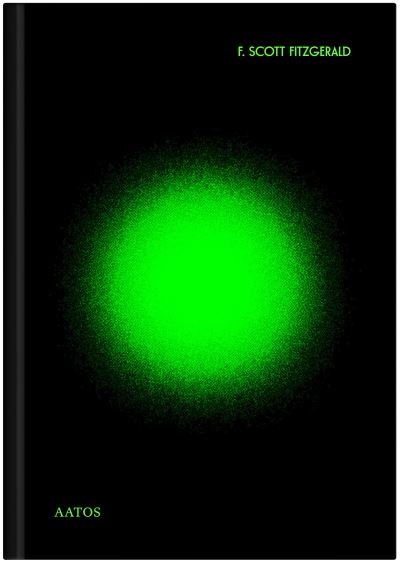LoveReading Says
August 2011 Guest Editor Deborah Lawrenson on F Scott Fitzgerald...
F Scott Fitzgerald’s The Great Gatsby is so full of exquisite prose it’s like being glutted on champagne and diamonds and fluttering silk. And it’s the contrast between the glittering words, and the lost illusions and tawdry underside of the American Dream in the 1920s that makes this such a poignant read. That and the best closing lines of any novel, ever.
Visit our '50 Classics Everyone Should Read' collection to discover more classic titles.
One of Giles Coren's favourite books.
A classic that captures the mood of the 1920's, the time after the great War when life was for living. Gatsby in pursuing the 'American Dream' finds, with devastating consequences, that money may not be the route to happiness.
November 2009 Guest Editor Katie Agnew on F. SCOTT FITZGERALD
Whenever I'm asked what my favourite book of all time is I never hesitate - 'The Great Gatsby'. For me there's no contest. I first read this novel at school and I've re-read it every couple of years since. I'm obsessed with it - Fitzgerald's flawless writing style, his painfully flawed characters, the deliciously decadent Jazz Age setting and, ah, that tragic ending. The story breaks my heart every time but like a moth to the flame, I can't help myself. I love it! I want to be in it! In fact, whenever I need a pseudonym, I use the name Jordan Buchanan, a character from 'The Great Gatsby'.
A survey recently named The Great Gatsby as one of the greatest fictional playboys of all time … click to find out more
LoveReading
Find This Book In
The Great Gatsby Synopsis
Scott Fitzgerald is known as the definitive author of the Jazz Age - the glittering, alcohol-fuelled, and outrageously freewheeling era of post-war euphoria. The Great Gatsby in turn is seen as his magnum opus, as the peak of his artistry - a classic depiction of the era, and of the human yearning for things just out of reach, of the powers of love and money. The novel depicts the journey of Nick Carraway, a young and well-educated American from the mid-west, as he enters the east-coast high society and its world of money and glitz in search of love and employment. His journey introduces him to the mysterious millionaire Jay Gatsby and a host of curious characters circling the attracting light of Gatsby and his wealth. Our section on F. Scott Fitzgerald and his life includes his own essay 'Echoes of the Jazz Age', written in 1931 to analyze the roaring twenties just as they had ended. The book comes in 137x200mm format with hard cover, black coloured paper edges and brilliant green details, designed by Tony Erapuro in Helsinki.
About This Edition
F. Scott Fitzgerald Press Reviews
'A classic, perhaps the supreme American novel' John Carey, Sunday Times 'Books of the Century'
'I've read the best novel ever this year. For beauty, economy and clarity there is no one to surpass F. Scott Fitzgerald in The Great Gatsby. If you haven't read it, do' The Times Metro
About F. Scott Fitzgerald
F. Scott Fitzgerald was born in 1896 in St Paul, Minnesota, and went to Princeton University which he left in 1917 to join the army. Fitzgerald was said to have epitomised the Jazz Age, an age inhabited by a generation he defined as ‘grown up to find all Gods dead, all wars fought, all faiths in man shaken’.
In 1920 he married Zelda Sayre. Their destructive relationship and her subsequent mental breakdowns became a major influence on his writing. Among his publications were five novels, This Side of Paradise, The Great Gatsby, The Beautiful and Damned, Tender is the Night and The Love of the Last Tycoon (his last and unfinished work): six volumes of short stories and The Crack-Up, a selection of autobiographical pieces.
Fitzgerald died suddenly in 1940. After his death The New York Times said of him that ‘He was better than he knew, for in fact and in the literary sense he invented a “generation” … he might have interpreted them and even guided them, as in their middle years they saw a different and nobler freedom threatened with destruction.’
More About F. Scott Fitzgerald
